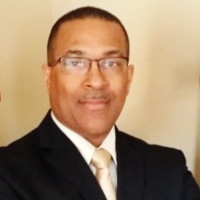“Lord, send a revival!”
We have raised this plea through countless generations. God has not failed to answer, acting as the Spirit throughout the world in fulfillment of Joel 2:28–32. I get excited and greatly moved when I hear that a member of the generation known as Gen Alpha (those born between approximately 2010 and 2025) appears as a part of this prophecy, answering their individual calling to ministry.
Contrary to the narratives posted and streamed through many channels, as a high school educator, I have seen and heard my students answer the call to discipleship and ministry. They move along what I learned as the “7 C’s of Service”: conviction, confession, conversion, call, commission, commitment, and compassion. I have added an eighth C: courage. They wear their worship hoodies, and they witness vocally, showing their peers that faith and discipleship are joyful and exciting ways of living. They courageously lead their peers in faith and fellowship, transforming my classroom into their prayer and Bible study room, leading friends to faith in Christ at those tables and chairs.
Playing my part in the revival
My ministry started in 1996 with the Silent Generation. In my last senior pastoral position, I saw old things passing away before my eyes, and I encountered “weaponized nostalgia.” When I cast a vision and proposed initiatives for the post-COVID future, I was resisted with weaponized nostalgia. A new direction meant to prepare the church for major generational changes constituted a moral crisis. By sharply redacting the past, the benchmarks of decline that started long before my tenure were ignored.
I found motivation and comfort with members of Generation Alpha. Not only did I see them living their faith out loud, but they trusted me with their personal call narratives. Every Monday, one student would share her experience teaching Sunday school. The evidence of her calling was clear, so I encouraged her to find a way to get some training. She came to me saying, “Dr. Wyckoff, I looked, but my family doesn’t have $2000 for a certification.” “OK,” I said, “I’ll create a program for you.” With that, my youth teaching academy, Go and Do Likewise, was born to equip Gen Alpha individuals ages 15 and older to serve as teachers and emerging ministry leaders.1
Participants tap into fresh understandings of neuroplasticity and participation in the learning space, where frustration is a sign of development, not weakness. They learn to teach Bible narratives through Ignatian devotional strategies, understand story-linking, and develop engaging lessons. The command of Jesus at the end of the parable of the Good Samaritan (Luke 10:25–37) is the inspiration for the name. “Go and Do Likewise” embodies Gen Alpha’s desire to express the mercy of God through their values. This generation, the first to be born in the 21st century, refuses to sit by when they have the motivation and technology to “go and do.” Sadly, what the next generation adopts first, the church is likely going to adopt last, in part because of weaponized nostalgia. My part in the revival is to develop this training.
Give Gen Alpha the grace to develop their own God Talk
A great concern I have for youth and their formation within their calling is that they will try to fit in to avoid criticism at the expense of what God has sent them to do and to be. My mantra for them is, “Don’t mimic the gimmicks.” They should develop as the vessel God has chosen and act confidently without casting themselves in the image and voice of a YouTube video. Prior generations have a serious communication gap with Gen Alpha. They should not be victims of weaponized nostalgia because they don’t “sound” or “talk” the same as another generation. God is speaking to and through Gen Alpha. Gen Alpha is experiencing God as God sees fit. Previous generations must give Gen Alpha the grace to develop their sound as they blow their trumpet (1 Corinthians 14:8).2
Indigenous people the world over have been persecuted because their God Talk was not Western or English. Replacing languages and ways of learning and knowing is a hallmark of imperialism and colonization. In countries in Africa, spoken theologies are not academic. They are a form of oral communication that reflects cultural identity, lived religious experience, and meaningful theological insight in everyday language. Knowledge of God is transferred in cultural language and linguistic traditions that are no less about the God revealed in Jesus Christ.
Likewise, Gen Alpha is a generation further removed from the language and metaphors of prior generations because they are natives to the digital world. Thus, their God Talk, their spoken theologies, will be received differently by earlier generations. That difference should not lead to condemnation. God is no less than the ultimate power. Jesus Christ is no less God’s Son and our Savior. Gen Alpha’s metaphors for divine attributes, praise words, and God imagery will come across differently, like those of another culture. God should not be limited to a generationally centered paradigm, making Gen Alpha’s theological expressions invalid.
Every culture and generation has its way of passing on knowledge. In this age of transition, if the church will lay aside weaponized nostalgia for prayer and stillness, another Pentecostal experience will allow current generations to speak of the great things that God has done in the language of Gen Alpha, extending the grace of God once given to the next generation.
Notes
- I am grateful for the endorsement of this training by Curanopy and the addition of this training to their Leadership Learning Lab offerings. Learn more at www.curanopy.org. I am also grateful for the support of Dr. Peter J. Bellini, Professor of Church Renewal and Evangelization in the Heisel Chair at United Theological Seminary (Dayton, Ohio). His most recent book, Losing Your Mind (And Gaining the Mind of Christ): How to Overhaul Your Brain for Faith, Focus, and Flourishing (Invite Press, 2025), has also informed the development of this training.
- For additional resources, see Working Preacher’s free ebook, Youthful Sermons, by Richard Voelz: https://www.workingpreacher.org/ebooks/youthful-sermons.


